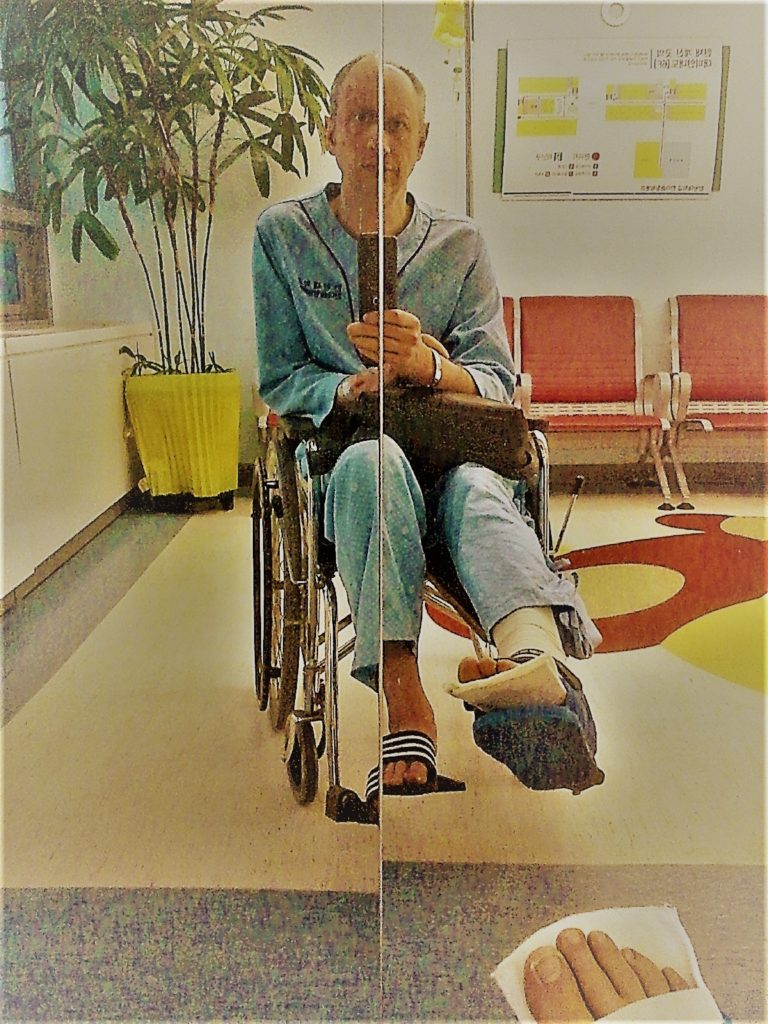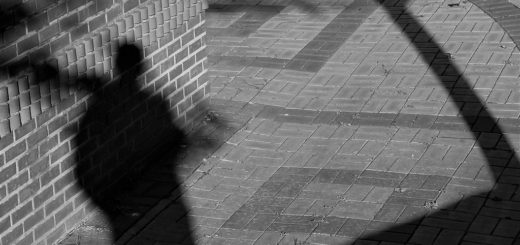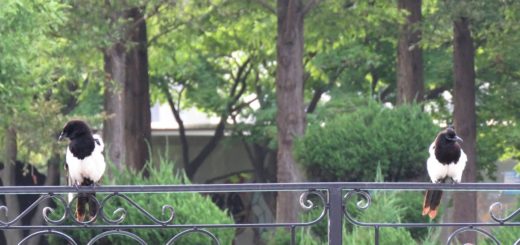Limbo’s Greatest Hits: #4

2019 has been a peculiarly difficult year for me in some ways. Most if not all of the trouble stems from an innocent moment of carelessness back in January. Specifically, on January 23rd, walking home from my office, I casually stepped out to cross the street at a busy corner — an intersection I cross every single day — and somehow my right foot landed half on, half off the curb, just as I was shifting all my weight onto that foot. The foot rolled over with all my weight on it. I felt a grinding sensation — indeed, almost felt as though I could hear it — before righting myself and quickly hobbling across the street to avoid the oncoming cars.
As soon as I reached the other side, I knew I had hurt myself much worse than is typical in such little mishaps; but I assumed, or rather wished to believe, that it was merely a sprain which would require an icepack and a couple of days of elevation. A few days later, Saturday, as the swelling subsided, I could no longer avoid noticing that the foot itself had acquired a slightly new shape. It was time to grudgingly visit the emergency room for an x-ray.
As I waited for the x-ray result, I instinctively felt a little embarrassed, as one does who loathes unnecessary trips to the doctor, while sitting in an emergency room presumably just to be told to “stay off it for a couple of weeks.” However, the young intern who called me over to show me the x-ray results, probably tired of the dull routine of Saturday morning cuts and bruises, spoke with the intonation of something like surprised, barely suppressed pleasure in her voice when she said, with wide eyes and a sympathetic smile, “Your foot is broken!”
Two days later, I was being formally admitted to that hospital for surgery to repair a broken metatarsal. Thus began an ordeal far beyond anything I had anticipated as I limped home that first afternoon hoping there was an icepack in the freezer.
I thought the best therapy to get me through the stress and bother of an extended hospitalization would be to write, and so I quickly had my trusty laptop brought to my room for that purpose. But what to write about? All I had in my mind at that moment was the prospect of months without one of my favorite and most constant activities, walking, in addition to the general discomfort of being a natural loner (and one averse to the norms of modern society) stuck in the exceedingly “social” (and ultra-modern) environment of a busy hospital, continually surrounded by strangers and waylaid by “healthcare professionals.”
Needless to say, that condition itself became the main theme of my writing for the next few weeks. And this in turn contributed to further reflections on a broader but related topic in which I have long had an abiding interest, namely the role of hardship, pain, and failure in life, and more specifically in the best life.
The initial product of this new and unwelcome situation, begun the evening before my surgery, and completed (on pain medication — my first and last experience writing in any kind of “altered state”) over the following couple of days, became the first installment in a series of articles developing the themes of walking, slowness, and the philosophic life, and Number Four on our list of the most popular items here in Limbo since August 1st, 2018, “As I Lay Living, Part One.” It was originally posted on January 30th, 2019.
As I Lay Living, Part One
I have been away from Limbo for a couple of days. The reason is explained in the following:
Day 1
The Moonlight Sonata is being performed at this moment, but only I can hear it. In fact, even I cannot hear it. I hear Beethoven’s mind interspersed with the cackling cacophony of mindlessness. Beethoven, mercifully going deaf, shares his private musings on passion and freedom, while the true products of this German revolutionary spirit, immodest and irrelevant teenagers, enjoy the special pleasure of the unknowingly vanquished, the joy of death as living cannon fodder for men whose freedom-destroying words these teenagers will never read, could never read.
I am sitting in a hospital bed with a broken foot, thus deprived even of my habitual escape from the ugliness, licentiousness, and vulgarity. I am a prisoner of my surroundings. At the moment this means trying to listen to Beethoven on the radio and form coherent thoughts, mainly in order to assuage my fear of losing my will to live, while a group of teenage morons giggle and gossip, on, around, perhaps under (who knows?) the bed of a boy with ridiculous dyed blond hair.
As I write, and the pianist tries his best to distract me from the twenty-first century, the wife of an older man also in my room tentatively approaches to proffer a yogurt drink, thereby partially restoring my hope for humanity, until I recall that she is old, and will therefore be leaving this country and this world to the ignorant masses of vulgar teenagers – chronological and spiritual – soon enough.
I will be happy when this is over. I leave it to the reader to ponder what “this” means in that last sentence.
Surgery tomorrow.
Day 2
I am a walker. Not an exercise walker or a Sunday afternoon stroller. A walker, as Aristotle and Nietzsche were walkers. I am “of that school,” as it were. All my life, every day, I walk. I walk from Point A to Point B, but I do this not primarily to get to Point B, but more because I always feel there is something I need to find beyond Point A. Point B is just an obligatory rest stop on the way to that something. Life, for a walker, is made up of searches for something and obligatory rest stops, roughly corresponding to soul and body.
Now I have a broken bone in my foot. I cannot walk at all. I think of what it would be like to be permanently at rest. The long repose.
Being led into the operating room and prepped for a surgery that will leave me trapped in No Walker’s Land for many weeks, I buck myself up in my usual fashion, namely by asking, “What would Socrates do?” And then that heartening speculation becomes far more real, as I am given a spinal injection to temporarily paralyze my lower half. As I lose all feeling and movement in my legs, I think of Socrates, in the Phaedo, after drinking the hemlock.
The jailer felt his feet. They were cold. He continued to feel upwards from the feet toward the groin. “When it reaches the heart, he will be gone.”
Isn’t this also a fair description of the civilization of which Socrates is a seminal figure? Socrates was forced to drink the hemlock, and the poison is only now completing its progress through mankind’s arteries. When the cold reaches our heart, we will be gone. Gone where? The question of the soul’s immortality, which occupied Socrates and his friends in his final hours, resonates through a civilization. What happens to the soul of a world that dies? Does a civilization have a fate distinct from the fates of the individuals who comprise it?
What we call Western civilization, now essentially deceased, may be likened to a walker. It was slow, and valued slowness. The long walk (walk, never run) is a contemplative experience. It is a time for quiet thinking and thoughtful speech, which is to say walking is for being alone, or with a friend – or with a friend with whom you may nevertheless feel alone, in the sense of being without the masks and performances endemic to your presence in political life, or your “social self,” to defer to the modern lexicon. Running and driving are the motions of people in haste, souls obsessed with time. A walker has habituated himself to approaching life on the premise that “There is plenty of time,” whereas the speed traveler is habitually certain that he “has no time.” Paradoxically, this means the walker is forever straining against the limits of temporality, teasing the edge of eternity, while the speed traveler is hopelessly trapped in temporality, fatally oblivious to the possibility of any other mode of being.
Western Civilization was peripatetic; walking was its metaphor for living, walking in a circle (preferably around a defined perimeter) its physical analogue of thinking. Hence its essential movement was educational, its essential motive force the desire to know, its essential character the teacher, its essential relationship the friendship of souls — those who think together. It is no mere peculiarity, but rather a fact of world-historical significance, that Plato and Aristotle made friendship the key term of their moral theories, and the indispensable link between the civic and contemplative aspects of life, whereas modern moral philosophy has nothing relevant to say about friendship at all. That difference is a measure of the growing paralysis of Western civilization. A traveler from another planet who read only Kant – the lynchpin figure in modern ethical theory – could be forgiven for assuming that humans never spoke to one another with pleasure at all, let alone that self-development and the fulfillment of human nature could have anything to do with such associations.
When the hemlock reaches the heart, we are gone.


